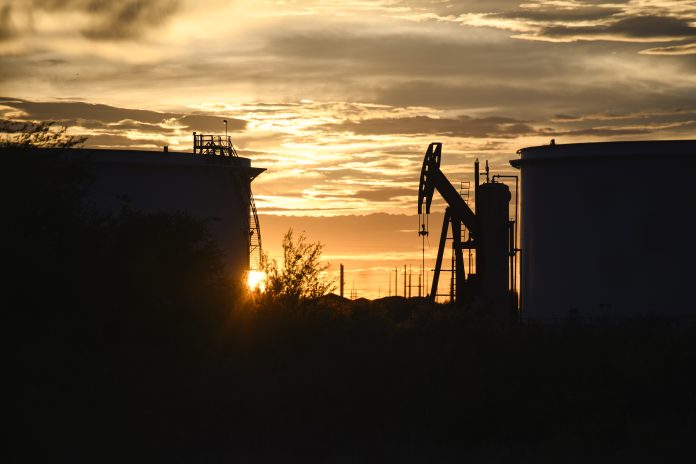
Climate change is the bear in the camp site of the energy industry, but American oil and natural gas producers have learned to live with it and have become the world’s most effective advocates of protecting the environment.
Building carbon capture and sequestration plants, greatly reducing methane emissions and using geothermal energy and other advanced methods of providing cleaner energy are requiring multi-billion dollar investments.
Odessa oilman Kirk Edwards, State Rep. Brooks Landgraf and Waco economist Ray Perryman say the expenditures are well worth it, but it would be nice to get a little recognition from President Biden and the other radical environmentalists who hate the industry so unreasonably.

“I think the climate change issue has been overly politicized and unfortunately it seems to be getting worse,” Edwards said. “As can be seen in liberal states that tout climate change, they have gone to drastic means to limit oil and gas production in their states and especially the drilling and fracking of wells.
“California is the poster child, of course, with their above $5 gasoline prices when here in Texas last week we were sitting at $2.50. The taxes they place on gasoline are then misspent in other areas, which only makes the problem worse while not at all affecting the so-called global warming.”
Edwards said Texas has done well not to take the draconian measures that other states have.
“Oil companies do their very best to be great stewards of the environment, but clearly that message does not get out to others like it should,” he said. “We see the major oil companies touting their green agendas so their stock prices will stay up, but when China and other Third World countries are doing their best to build more coal plants and are flaring natural gas with reckless abandon, the overall atmosphere is only going to get worse as far as emissions go before it can get better.
“We can do all we want here in the United States, but it doesn’t matter one bit when China and others won’t.”
Landgraf said the expression “cutting off the nose to spite the face” aptly describes the actions of some big-city politicians and radicals who would phase out oil and gas production under the banner of environmental protection.

“This approach neglects the significant efforts that the energy industry is making to address environmental concerns, including investments in direct air capture plants and methane emissions control, which are crucial for environmental stewardship,” he said.
“These initiatives demonstrate the industry’s commitment to mitigating environmental impacts despite the substantial capital investments required. While such expenditures may appear to divert funds from other operational areas, in the end they promote sustainable business practices and long-term viability.”
The Odessa Republican said the desire for a healthy environment is as universal in the energy industry as it is everywhere else.
“Regardless of political affiliation, everyone wants to drink clean water and breathe fresh air,” he said. “And as stewards of our natural resources, we must also balance our environmental responsibilities with practical energy needs.
“Ultimately, efficient energy solutions not only benefit the environment but also ensure the industry’s resilience and sustainability. I believe that as the industry continues to invest in these areas, public perception will likely shift positively, recognizing the industry’s vital role in both energy production and environmental conservation.”
Perryman said fossil fuels are a perpetual lightning rod for environmental debates and they attract the lion’s share of activists’ attention.

“The problem is that the arguments against the energy industry are often oversimplified and they fail to account for the facts on the ground,” Perryman said. “Climate change is real, it is a major issue and it requires substantial investments.
“Emissions are a reality and much work must be done to reduce them in a rational and sustainable way. What is often missing from the narrative is the fact that the industry is already leading the way on environmental protections such as carbon capture and sequestering, geothermal energy and other advanced methods of providing cleaner energy with fossil fuels.
“Efforts are also underway to remove carbon at power plants, refineries and other locations where traditional energy sources are utilized.”
While wind and solar power have important roles to play, he said, they are intermittent sources and storage options are not yet fully scalable to meet the demand.
“Other forms of energy are also important,” Perryman said. “With soaring demand due to the emergence of many economies around the world and the increased power needs associated with the rapid adoption of artificial intelligence and other technologies in more advanced economies, we will be in an all-of-the-above energy environment for decades to come.”
He said the obvious and only practical answer is the responsible use of fossil fuels, incorporating methods of keeping the industry cleaner from exploration to production to ultimate use.
“It is both possible and necessary to continue developing oil and gas resources to ensure not only the quality of life such as transportation and heating and cooling but also well-being thanks to the extensive other crucial products such as plastics for sterile medical products and fertilizers to feed the world,” Perryman said. “Adequate energy is also essential in relieving the massive levels of extreme poverty in many parts of the world. It’s a very complicated issue, but it’s essential to acknowledge that the oil and gas industry is part of the solution.”
He said the investments that are occurring in producing in a more responsible manner, much like those reflected in the recent oil company mergers to obtain access to more reserves, should be viewed as rational decisions designed to maximize long-term value and sustainability in the industry.



